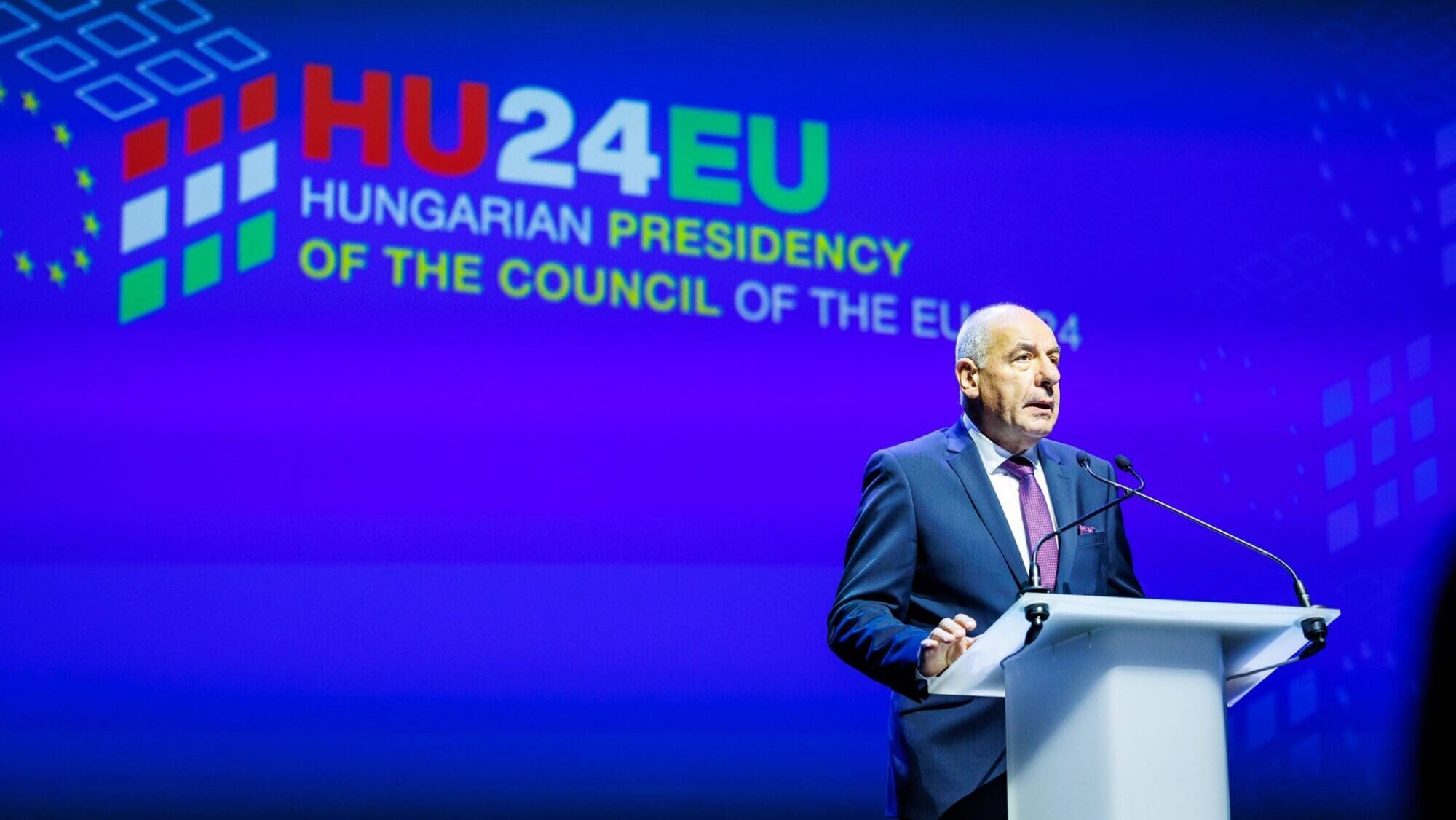
Hungarian President Tamás Sulyok
Photo: @DrTamasSulyok on X, 1 July 2024
Hungary will endeavour to work with rather than against EU institutions to advance a sovereigntist agenda in the coming six months. This was the key message conveyed at the Brussels inauguration ceremony, kicking off the country’s term at the helm of the European Council presidency.
President Tamás Sulyok was just one of the many international dignitaries present at the Hungarian Presidency’s official opening ceremony, stressing the need for compromise despite the decade-long institutional war waged against his country by Eurocrats.
“#Europe's strength and value therefore lies not in the amalgamation but in the aggregation of nations" – at the opening event of the Presidency of the Council of the European Union 🇭🇺🤝🏻🇪🇺#Hu24Eu #Brussels pic.twitter.com/Pt2d6HzEq6
— Dr. Tamás Sulyok (@DrTamasSulyok) July 1, 2024
Hosted at a swanky Brussels arts venue under the title “our European heritage,” dignitaries packed the halls and were treated to a pan-European evening of musical works by Bach and Béla Bartók, alongside imagery and speeches that underlined the bloc’s Christian heritage.
“Europe’s strength and value therefore lie not in the amalgamation but in the aggregation of nations,” President Sulyok said in his speech.
“The art of compromise can be learned in Brussels. Just as Belgians do not or often barely understand each other in Belgium, Europeans are the same way,” he said. “But in the end, you must always seek compromise, without which no people, no nation, is likely to be viable,” the president noted. On Hungary’s commitment to European interests, he said:
We have experience, the necessary knowledge, and are well prepared to lead a successful presidency again. More importantly, we are strongly committed to defending the interests of Europe, we have a clear vision of the future and the challenges we are facing today.
President Sulyok declared that his prime minister, Viktor Orbán, used an op-ed in the Financial Times to emphasise a pro-farmer and pro-growth agenda to protect European competitiveness.
Control of the Council presidency grants Hungary power to set the pace for EU member states in Brussels. Left-wing MEPs failed to derail Hungary’s assumption of the role, which they had based on claims that Budapest violates the EU’s rule-of-law requirements, largely motivated by the Fidesz government’s stance on migration and Ukraine.
So fearful are the Eurocrats of Hungary exerting influence on policy that one EU diplomat candidly admitted to taking pills “to calm myself” to combat the growing stress of the pending Hungarian Presidency. Some MEPs previously even toyed with the idea of suspending Budapest’s voting rights in the European Council.
Prior to the arrival of newly elected right-wing and populist MEPs, the previous Belgian Council Presidency was characterised by hurrying progressive EU legislation through the corridors of power. In contrast, the Hungarian term is likely to feature a curtailment of excessive green legislation and moves to initiate a potential peace deal with Russia in Ukraine.
In tandem with its international overtures, Hungary is seeking to become a kingmaker in the European Parliament. Orbán and his Fidesz party aim to forge a new right-wing parliamentary bloc in league with various European populist parties, including Portugal’s Chega and the Austrian FPÖ.
A Trump U.S. election victory in November would add wind to the sails of Hungary’s six-month-long presidency due to the strong ties and shared ideological interests of the Trump campaign and Fidesz. The Hungarian Presidency now operates under the distinctly Trumpian slogan of ‘Make Europe Great Again.’
